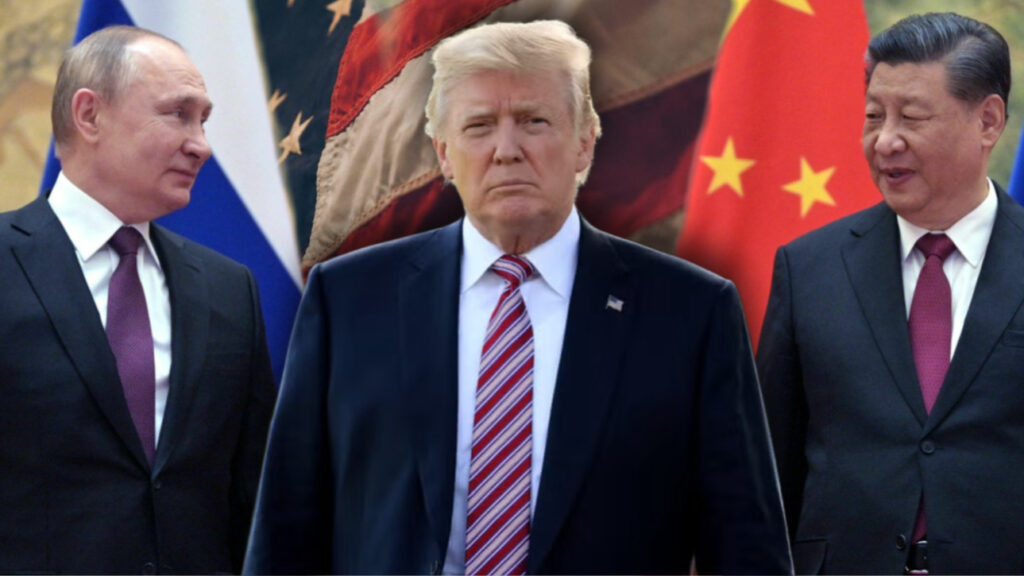The recent re-election of Donald Trump as President of the United States has sparked significant reactions from world leaders, particularly Russian President Vladimir Putin and Chinese President Xi Jinping. Their responses highlight a collective acknowledgment of Trump’s assertive leadership style, which is perceived as a catalyst for potential shifts in international relations. Both leaders recognize that Trump’s presidency could usher in a renewed era of diplomacy, where past conflicts, notably concerning Ukraine and U.S.-China relations, might be addressed in a more constructive manner. The anticipation of these changes underscores a broader global hope for a return to stability and peace.
Putin expressed his willingness to engage with Trump and praised the Republican’s approach to foreign relations, particularly his commitment to rebuilding ties with Russia and finding a resolution to the ongoing crisis in Ukraine. During a speech at the Valdai forum, Putin congratulated Trump and indicated Russia’s readiness for dialogue. His remarks emphasize a desire for collaboration and a mutual understanding that aims to restore peace. Putin’s assurances reveal a significant shift in tone compared to previous years, suggesting a geopolitical landscape that could align more closely with Trump’s objectives.
Trump, during his campaign, confidently claimed he could resolve the Ukraine conflict swiftly, although he provided limited details on how he intended to accomplish this. His assertiveness in promising quick solutions signals a bold approach to diplomatic engagements. Putin’s recognition of Trump’s resilience, particularly after an assassination attempt during a rally, illustrates a personal respect for Trump’s character and strength in crises. This acknowledgment from the Kremlin may indicate a readiness to engage positively, recognizing Trump’s ability to navigate tense situations with courage.
Simultaneously, Xi Jinping’s early outreach to Trump reflects China’s desire for a stable and constructive relationship with the U.S. Xi articulated that cooperation between China and the United States has historically benefited both nations while confrontation has led to mutual detriment. His congratulatory message emphasized the importance of maintaining open lines of communication, managing differences thoughtfully, and pursuing collaborative opportunities. This perspective highlights China’s interests in ensuring that U.S. policies under Trump do not provoke unnecessary tensions but instead foster a more harmonious international environment.
Xi further called for an era characterized by mutual respect and win-win cooperation, positioning China as a proactive participant in international relations under Trump’s leadership. His commitment suggests a cautious optimism for future interactions, as both nations seek to navigate complex economic and geopolitical challenges together. The emphasis on cooperation over confrontation aligns with the global community’s aspirations for improved relations between major world powers, which is crucial in today’s interconnected world.
In conclusion, the interactions and statements from Putin and Xi signify a readiness among prominent global leaders to engage with Trump in his second term. This potential for renewed diplomatic efforts points towards a transformative phase in international relations that could have far-reaching implications. As the world watches, the expectations surrounding Trump’s leadership style, including his ability to forge partnerships that prioritize mutual interests, will largely shape the future of U.S. foreign policy and global stability. The evolving dynamics reflect a common hope for constructive dialogue and cooperation that could ease longstanding tensions and foster peace worldwide.

